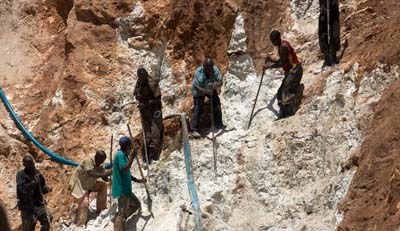
The United Nations added powerful international backing to the fight on conflict minerals this week. The U.N. Security Council, backed by the leadership of the U.S., France, and the UK in particular, adopted Resolution 1952 on Monday, which lays out a strong international framework for companies to follow for purchasing minerals from Congo or the wider Great Lakes region. If companies do not follow these due diligence guidelines over the next year, they will likely be sanctioned by the United Nations.
This is an excellent step forward, as companies will now know exactly the audits and risk assessments they will have to take when sourcing minerals from Congo, if they want to avoid sanctions.
The U.S. made a powerful difference on the resolution. U.S. Ambassador to the United Nations Susan Rice heralded the council’s “unprecedented decision” to address Congo’s conflict minerals trade and commended the U.N. Group of Experts and DRC Sanctions Committee for their work. She noted that the new due diligence guidelines could “significantly limit the illicit minerals trade, which has for many years fueled violence in the DRC.”
The second major accomplishment of the resolution is that the U.N. and companies interested in buying minerals from Congo must also now investigate criminal networks within the Congolese army. This is a major step forward, as the U.N. previously only focused on rebel groups or foreign armies in the Congo. But as we have long known – and the U.N. Group of Experts documented in detail in its most recent report, and not for the first time – the Congolese army has been deeply involved in the conflict minerals trade for years and is one of the foremost abusers of human rights in eastern Congo. Their inclusion in the report is therefore very significant. Companies will no longer be able to say that buying from army-held mines is suitable; they will have to investigate whether those army units are major human rights abusers.
The resolution follows the publication of the U.N. Group of Experts report on Congo, which can be downloaded here. A couple of other notable inclusions in the resolution, following from the Group of Experts report:
- Recommends that the Group of Experts include a permanent 6th expert focused on natural resources. (Currently the group includes five experts, and for this recent report they brought on a natural resources expert as a consultant.)
- Requests states to transparently publish minerals data, which is an excellent step on the way to proper tracing and auditing.

